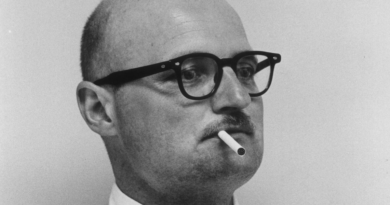Macron unveils new French government dominated by centrists and conservatives
The French presidential palace unveiled a long-awaited new government Saturday dominated by conservatives and centrists. It came more than two months after elections that produced a hung parliament and deepened political divisions as France grapples with growing financial and diplomatic challenges.
A left-wing coalition secured the most seats in June-July parliamentary elections but failed to win a majority. Student groups and activists from the hard-left France Unbowed party held protests around the country Saturday against a government they say rejects the voters’ will.
President Emmanuel Macron named conservative Michel Barnier as prime minister earlier this month even though Barnier’s Republicans party had a poor showing in the elections, and Barnier put together the government after difficult negotiations. Macron approved, and it was announced at the presidential palace.
Marine Le Pen‘s far-right anti-immigration party National Rally has no seats in Barnier’s government, but has enough votes in parliament to bring it down. The party won an indirect victory with the appointment of staunch conservative Bruno Retailleau as new interior minister, whose remit includes critical domestic issues like national security, immigration, and law enforcement.
The makeup and direction of France’s government is important because the country is a leading voice in EU policy, among the biggest world’s economies and a nuclear-armed, veto-wielding member of the U.N. Security Council.
The 39-member Cabinet includes primarily ministers from Macron’s centrist alliance and the conservative Republicans.
Jean-Noël Barrot is the new foreign minister, a centrist politician known for his work in digital transformation and European affairs. He brings extensive experience in navigating complex international issues notably within the EU.
The new finance minister is Antoine Armand, an emerging figure in French politics now tasked with steering France’s fiscal policies and managing the upcoming 2025 budget, amid pressure from Brussels to address France’s mounting debt.
Sébastien Lecornu retains his post as defense minister. He has been instrumental in bolstering France’s military capabilities, including modernizing defense systems and managing military aid to Ukraine. His leadership in defense will be crucial as France navigates its role within NATO and handles rising geopolitical tensions over the wars in Ukraine and the Mideast.
Barnier’s ability to govern effectively is already under scrutiny, with his political opponents on the left vowing to challenge him at every turn and the far right saying it will monitor the government closely.
The left-wing New Popular Front alliance surprised many by winning the most seats in the risky snap elections that Macron called in the wake of a far-right victory in European Parliament elections.
But the New Popular Front was not given a chance to form a minority government, and refused to make concessions and join a more left-leaning government alliance.
Barnier, a 73-year-old political veteran known for his role as the European Union’s Brexit negotiator, is no stranger to complex political tasks. However, forming a government that can survive in such a divided parliament will test his extensive experience and political acumen.
Barnier’s first major political test will come on October 1, when he is set to deliver his general policy speech to the National Assembly.


